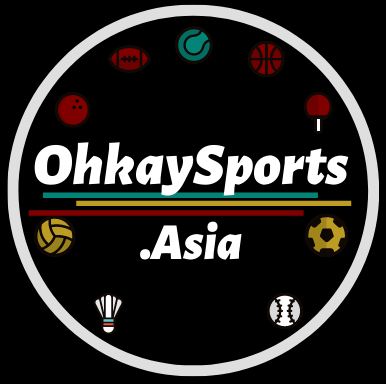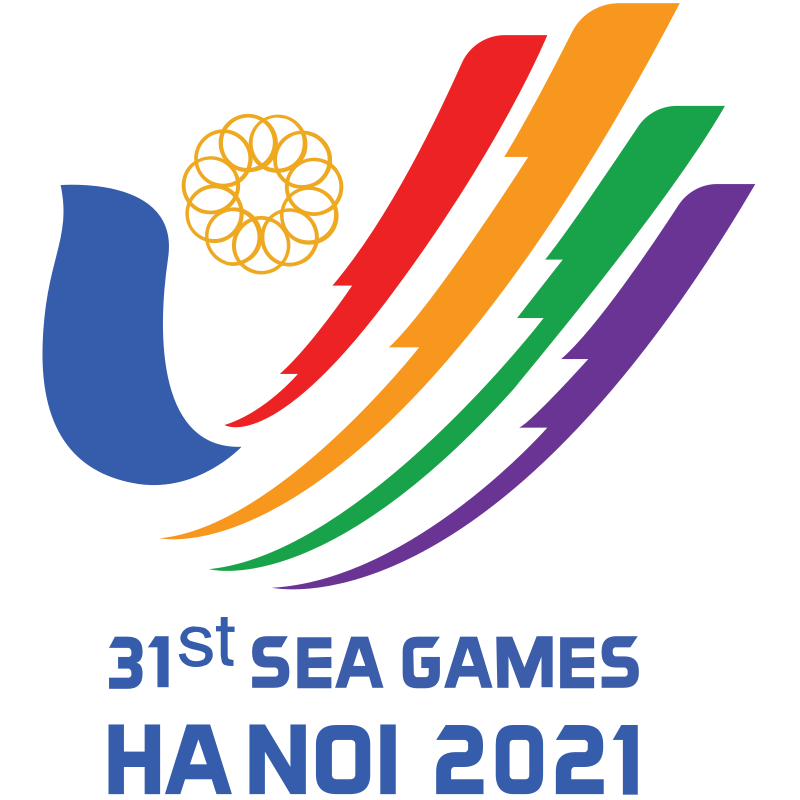Sometime in March, the final list of Singaporean athletes heading to the SEA Games in Hanoi was confirmed. After the initial selection & subsequent appeals have been looked at, we now know there is a list of confirmed names of those going to the games this May.
There is a list, for sure, but it does not appear to have been made public. Certain sports associations have congratulated selected athletes, showcasing names and profiles on Instagram or the associations’ websites. Some athletes have been featured on articles on mainstream media, but beside these, there’s no published name list of the 400 over athletes. Even when mentioning the 330 athletes that were selected in the first nomination back in February, there was no list of names given by SNOC online.
We were reminded on this athletes’ selection thanks to a commentary published on Yahoo, a ‘GG’ commentary questioning the selection process of athletes in the Singapore Esports team going to Hanoi. At the heart of the argument was the idea that SGEA’s selection trials are not really ‘selections’, but more just nomination trials since there are athletes ‘selected’ at these trials that would not be going to the Games.
To consider all sports, and not just Emerging ones, let’s consider the process for nomination and selection to Major Games like the upcoming SEA Games in Hanoi. Every Team Singapore athlete going to Major Games go through the same process: National Sports Association (NSAs) will collate their own nomination lists through selections based off an NSA selection policy initially approved by SNOC & SSI. The nominated lists of athletes are then put to the SNOC selection committee which applies this pre-published selection criteria to select athletes for the Games.
For any individual athlete gunning to represent Singapore at the SEA Games, both the NSA selection policy for nomination as well as the SNOC selection policy & criteria should have been pretty clear and made known well in advance of any selection trials. With every sport being unique and different from the next, the NSA selection policy should have dealt with the nuances of every sport & event’s characteristics. When the nominated list reaches SNOC, their criteria appear to judge all sports equally. Amongst the paragraphs of the selection criteria, the only objective one appears to be the ‘3rd placing from the previous SEA games’ or equivalent, whatever this 3rd placing actually means.
This objective standard helps athletes to judge where they are, and perhaps feel assured of going to the games if they have achieved such a standard and got nominated by their respective sport’s NSA. We ignore the exceptions of behavior, attitude or character issues for this discussion.
This criterion of ‘3rd placing’ was brought up as a ‘requirement’ in the Yahoo commentary. It must be mentioned that this criteria is applied for all sports and esports is but one of the 40 that will be hosted in Hanoi. Are there nominated & unselected Singaporean athletes out of the other 39 sports? Chances are, yes there will be, even if there’s no Yahoo commentary written about them. This takes the context away from just Esports to all sports.
Let’s consider why 3rd placing from the last games? A quick thought is that it means the athlete is competitive at major games level, with a chance of winning a medal or Good Enough To Medal (GETM). Is this expectation wrong? We’d argue not really, since the Major Games are at a high level and ought to be treated as such.
However, does ‘3rd placing from the last games’ really equate to the athlete being GETM? Assuming it’s not always the case, we will find athletes that are selected that are not GETM as well as missing out on selecting athletes that are actually GETM but will never get a chance to, because they will not be going to the games. The latter is assuming Singapore has unfilled entries available to send these GETM athletes.*
*If Singapore can send 3 entries to an event but there are 10 GETM athletes, only the top 3 from NSA selections will make it.
Back to the ‘3rd placing’ mark, there are real issues with using it as the only objective criteria across the board of sports; technology advances, change of rule & the nature of the specific sport makes it a muddy landscape. As technology advances, timings get shaved off for timed sports and makes the previous ‘3rd placing’ mark easier to reach. This technology effect is not seen in combat sports or point-based sports (eg. ball sports/racket sports). For target scoring sports, or round-based sports (think bowling, golf, archery), every day/competition is different with venues, environment making a difference in the recorded score of the day and we could see record breaking scores or relatively low scores on the day of the Games which then affects the difficulty of future qualification. This create loopholes, where we then lose athletes that are actually GETM at the upcoming games but failed to meet the so-called objective mark of ‘3rd placing’.
The challenge of losing as little of these GETM athletes then comes down to the judgement calls of the carefully picked and experienced members in the SNOC selection committee, in the hopes that they, with their sports related experience are conscious of such possibilities and do well by each of the nominated athletes. There has to be trust in the selection committee to know the issues for each sport, instead of assuming them to be ‘boomers’ who do not care, whatever sport one might be backing.
Of course, there is no way to know how right or wrong the committee is, and eventually we only can fully support the Team Singapore athletes that are selected and going to the Games, and hope for the best.
It’s so important too to acknowledge each and every athlete that put themselves up for nomination throughout the entire process. Time for an analogy, have you ever had an awful experience at a restaurant despite it receiving rave reviews from everyone else. For the restaurant, your experience could well be one bad one compared to hundreds of great ones, it’s regrettable but ultimately too hard to prevent. It’s really a great record for such a restaurant actually. But to you as the customer, this experience is all you have. The customer with the bad experience, could be the athlete that’s GETM but not selected. The athlete could lose faith in the system as a customer loses faith in the restaurant, the difference being there is no other ‘restaurant’ for the athlete to go to.
It’s easy to say, if one does not meet the ‘3rd placing’ criteria, there’s nothing to be discussed. Thankfully, SNOC does not draw such a clear line and we do see efforts to select and send deserving athletes.
Thus, there is a chance of appeal. Any appeal for selection will only be considered when there is new information submitted compared to the original nomination, with athletes evaluated by an Appeals committee.
Thinking in the shoes of a NSA, acting in their & the athletes’ best interest mean having as many athletes be selected for the Games as possible. This boosts medal chances purely on a probabilities basis, on top of merits of exposure, development and more. We assume the ideal scenario for every NSA is to max out and fill every events’ entry spot with a selected Team Singapore athlete. Considering this assumption, NSAs should really keep a close eye on the timelines of SNOC’s selections & appeals period. NSAs should have as many competitions/selections as possible for athletes to qualify for nomination, and it’s strategic for every NSA to plan such an event in between the initial SNOC selection announcement and deadline for appeals.
Case in point this year: Silat Federation did such a great job. Based on the ST article, from having 3 athletes being selected initially, the number grew to 20 upon appeal, a 566% increase. This is likely due to the 8th Southeast Asia Pencak Silat championships being held at the end of February, in Singapore no less. The results of the championships likely provided the ‘new information’ required to make appeals to SNOC. Looks like we found at least one NSA that’s working hard for itself and the athletes it takes care of, which is definitely happy news for all Singapore sports fans.
There are a couple of other points raised in the Yahoo commentary, 1. Exposure, experience and improvement. 2. Money 3.Tapping a ‘younger more engaged crowd’.
For exposure, experience and improvement, this would be true for all sports, so the numbers of athletes that need to be sent for exposure, experience and improvement would then be pretty vast to be practical and justified. Furthermore, would only the Major Games be providing the experience that’s required to improve? That’s unlikely. In fact, Esports probably has some of the most opportunities for events for athletes to be exposed, gain experience and improve, compared to other sports, with less barriers for athletes to actually compete with other better athletes thanks to the convenience of games held online. Then why does being selected for exposure seem to matter more at Major Games like the SEA Games, is it due to the clout and special experience for an athlete to be involved with a multi-sports sporting event?
We see it as this: If an athlete is GETM, he/she should be selected, and not to have non-GETM athletes selected for exposure, experience since we have the entry spot available anyway and then hope they improve from going to the Games. NSAs can and should keep creating these opportunities of competitions for improvement, development of athletes.
Next, the point on funding. The point is moot if the athletes are not GETM. Furthermore, it’s a slippery slope if anyone that can fund themselves can go for Major games. If it were about money, we will see the effects of financial disparity, and will sports at the highest level only then become accessible to the wealthy?
Everyone generally thinks the best of their sport, wanting to defend their passion and their fandom. Thus, suggesting that only certain sports have ‘engaged and youthful’ audiences might be showing a bit of cloud-headiness out of a passion for a particular sport. Most, if not every, sports has their engaged audience and a new youthful generation that’s trying to get better at their game that cannot and should not be dismissed. Perhaps, it’s just a good idea to try to support and push for every sport as positively as we can as sports fans in Singapore.

